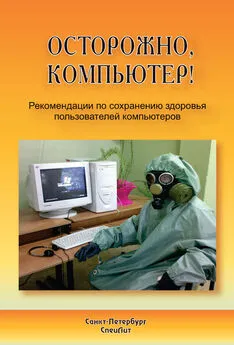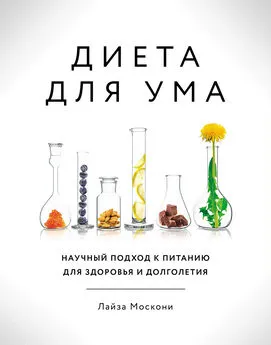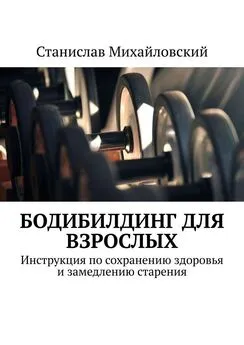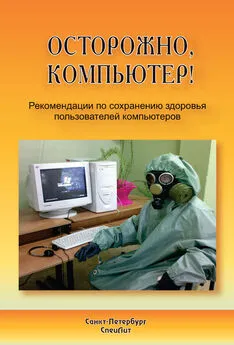Андрей Фоменко - Фокус на жизнь: Научный подход к продлению молодости и сохранению здоровья
- Название:Фокус на жизнь: Научный подход к продлению молодости и сохранению здоровья
- Автор:
- Жанр:
- Издательство:неизвестно
- Год:2021
- ISBN:9785907470569
- Рейтинг:
- Избранное:Добавить в избранное
-
Отзывы:
-
Ваша оценка:
Андрей Фоменко - Фокус на жизнь: Научный подход к продлению молодости и сохранению здоровья краткое содержание
Фокус на жизнь: Научный подход к продлению молодости и сохранению здоровья - читать онлайн бесплатно ознакомительный отрывок
Интервал:
Закладка:
4. Lin Y., Eckerle W. D., Peng L. W., Moser J. S. On Variation in Mindfulness Training: A Multimodal Study of Brief Open Monitoring Meditation on Error Monitoring. Brain Sci. 2019, 9, 226.
Глава 1. Принципы работы мозга
1. Diamond M. C., Krech D., Rosenzweig M. R. The effects of an enriched environment on the histology of the rat cerebral cortex. J Comp Neurol. 1964;123:111–120. doi: 10.1002/cne.901230110.
2. Moreno-Jiménez E. P., Flor-García M., Terreros-Roncal J., et al. Adult hippocampal neurogenesis is abundant in neurologically healthy subjects and drops sharply in patients with Alzheimer’s disease. Nat Med. 2019;25(4):554–560. doi: 10.1038/s41591–019–0375–9.
3. Tobin M. K., Musaraca K., Disouky A., et al. Human Hippocampal Neurogenesis Persists in Aged Adults and Alzheimer’s Disease Patients. Cell Stem Cell. 2019;24(6):974–982.e3. doi: 10.1016/j.stem.2019.05.003.
4. Duman R. S. Neuronal damage and protection in the pathophysiology and treatment of psychiatric illness: stress and depression. Dialogues Clin Neurosci. 2009;11(3):239–255.
5. Krishnakumar D., Hamblin M. R., Lakshmanan S. Meditation and Yoga can Modulate Brain Mechanisms that affect Behavior and Anxiety-A Modern Scientific Perspective. Anc Sci. 2015;2(1):13–19. doi: 10.14259/as.v2i1.171.
6. Schacter D. L., Addis D. R., Hassabis D., Martin V. C., Spreng R. N., Szpunar K. K. The future of memory: remembering, imagining, and the brain. Neuron. 2012;76(4):677–694. doi: 10.1016/j.neuron.2012.11.001.
7. de la Fuente-Fernández R., Stoessl A. J. T he biochemical bases of the placebo effect. SCI ENG ETHICS10, 143–150 (2004). doi: 10.1007/s11948–004–0071-z.
8. Maguire E. A., Woollett K., Spiers H. J. London taxi drivers and bus drivers: a structural MRI and neuropsychological analysis. Hippocampus. 2006;16(12):1091–1101. doi: 10.1002/hipo.20233.
9. Javadi A., Emo B., Howard L., et al. Hippocampal and prefrontal processing of network topology to simulate the future. Nat Commun 8, 14652 (2017). doi: 10.1038/ncomms14652.
10. Langer E., Djikic M., Pirson M., Madenci A., Donohue R. B elieving is seeing: using mindlessness (mindfully) to improve visual acuity. Psychol Sci. 2010;21(5):661–666. doi: 10.1177/0956797610366543.
11. Crum A. J., Langer E. J. 2 007. Mind-set matters: Exercise and the placebo effect. Psychological Science 18, no. 2: 165–171. https://dash.harvard.edu/bitstream/handle/1/3196007/Langer_ExcersisePlaceboEffect.pdf?sequence=1.
12. Weger U. W. & Loughnan S. (2013) Mobilizing unused resources: Using the placebo concept to enhance cognitive performance, The Quarterly Journal of Experimental Psychology, 66:1, 23–28, doi: 10.1080/17470218.2012.751117. https://pubmed.ncbi.nlm.nih.gov/23234490/.
13. Там же.
Глава 2. Большие ожидания и вера в исцеление: что такое эффект плацебо
1. Miller W. S. Elisha Perkins and His Metallic Tractors. Yale J Biol Med. 1935;8(1):41–57.
2. Perkins B. D. (1798). The Influence of Metallic Tractors on the Human Body. London: Printed for J. Johnson. Internet Archive. https://archive.org/details/b21458121/mode/2up.
3. Haygarth, Dr John, of the Imagination as a Cause and Cure of Disorders of the Body, Exemplified by Fictitious Tractors. Ann Med (Edinb). 1800;5:133–145.
4. Benedetti F., Pollo A., Lopiano L., Lanotte M., Vighetti S., Rainero I. Conscious expectation and unconscious conditioning in analgesic, motor, and hormonal placebo/nocebo responses. J Neurosci. 2003;23(10):4315–4323. doi: 10.1523/JNEUROSCI.23–10–04315.2003.
5. Amanzio M., Benedetti F. Neuropharmacological dissection of placebo analgesia: expectation-activated opioid systems versus conditioning-activated specific subsystems. J Neurosci. 1999;19(1):484–494. doi: 10.1523/JNEUROSCI.19–01–00484.1999.
6. Petrovic P., Dietrich T., Fransson P., Andersson J., Carlsson K., Ingvar M. Placebo in emotional processing — induced expectations of anxiety relief activate a generalized modulatory network. Neuron. 2005;46(6):957–969. doi: 10.1016/j.neuron.2005.05.023.
7. de la Fuente-Fernández R., Ruth T. J., Sossi V., Schulzer M., Calne D. B., Stoessl A. J. Expectation and dopamine release: mechanism of the placebo effect in Parkinson’s disease. Science. 2001;293(5532):1164–1166. doi: 10.1126/science.1060937.
8. Beecher H. K. T he powerful Placebo. JAMA. 1955;159(17):1602–1606. doi: 10.1001/jama.1955.02960340022006.
9. The nocebo responce. Harvard Health Publishing. 2014. https://www.health.harvard.edu/newsletter_article/The_nocebo_response.
10. Khan S., Holbrook A., Shah B. R. Does Googling lead to statin intolerance? Int J Cardiol. 2018;262:25–27. doi: 10.1016/j.ijcard.2018.02.085.
11. Parler de sa santé en ligne: une pratique loin d’être marginale et qui peut aider la recherche. Odoxa. 2018. http://www.odoxa.fr/sondage/parler-de-sante-ligne-pratique-loin-detre-marginale-aider-recherche/.
12. Put C., van den Bergh O., van Ongeval E., de Peuter S., Demedts M., Verleden G. Negative affectivity and the influence of suggestion on asthma symptoms. J Psychosom Res. 2004;57(3):249–255. doi: 10.1016/S0022–3999(03)00541–5.
13. Schweiger A, Parducci A. Nocebo: the psychologic induction of pain. Pavlov J Biol Sci. 1981;16(3):140–143. doi: 10.1007/BF03003218.
14. van Laarhoven A. I., Vogelaar M. L., Wilder-Smith O. H., et al. Induction of nocebo and placebo effects on itch and pain by verbal suggestions. Pain. 2011;152(7):1486–1494. doi: 10.1016/j.pain.2011.01.043.
15. Kaptchuk T. J., Kelley J. M., Conboy L. A., et al. Components of placebo effect: randomised controlled trial in patients with irritable bowel syndrome. BMJ. 2008;336(7651):999–1003. doi: 10.1136/bmj.39524.439618.25.
16. Madzharov A., Ye N., Morrin M., Block L. The impact of coffee-like scent on expectations and performance. Journal of Environmental Psychology. 2018. doi: 10.1016/j.jenvp.2018.04.001.
17. Moseley J. B., O’Malley K., Petersen N. J., Menke T. J., et al. A Controlled Trial of Arthroscopic Surgery for Osteoarthritis of the Knee. N Engl J Med 2002; 347:81–88. doi: 10.1056/NEJMoa013259.
18. Olson J. A., Suissa-Rocheleau L., Lifshitz M. et al. Tripping on nothing: placebo psychedelics and contextual factors. Psychopharmacology 237, 1371–1382 (2020). doi: 10.1007/s00213–020–05464–5.
19. Tuttle A. H., Tohyama S., Ramsay T., et al. Increasing placebo responses over time in U.S. clinical trials of neuropathic pain. Pain. 2015;156(12):2616–2626. doi: 10.1097/j.pain.0000000000000333.
20. Cipriani A., Furukawa T. A., Salanti G., et al. Comparative efficacy and acceptability of 21 antidepressant drugs for the acute treatment of adults with major depressive disorder: a systematic review and network meta-analysis. Lancet. 2018;391(10128):1357–1366. doi: 10.1016/S0140–6736(17)32802–7.
21. Kaptchuk T. J., Friedlander E., Kelley J. M., et al. Placebos without deception: a randomized controlled trial in irritable bowel syndrome. PLoS One. 2010;5(12): e15591. Published 2010 Dec 22. doi: 10.1371/journal.pone.0015591.
22. Guevarra, D.A., Moser, J.S., Wager, T.D. et al. Placebos without deception reduce self-report and neural measures of emotional distress. Nat Commun 11, 3785 (2020). doi: 10.1038/s41467–020–17654-y.
23. Optimism and your health. Harvard Health Publishing. 2008. https://www.health.harvard.edu/heart-health/optimism-and-your-health.
Глава 3. Мысли, которые исцеляют: о самовнушении
1. Rausch V. Cholecystectomy with self-hypnosis. Am J Clin Hypn. 1980;22(3):124–129. doi: 10.1080/00029157.1980.10403216.
2. Crum A. J., Corbin W. R., Brownell K. D., Salovey P. Mind over milkshakes: mindsets, not just nutrients, determine ghrelin response. Health Psychol. 2011;30(4):424–431. doi: 10.1037/a0023467.
3. Lagopoulos J., Xu J., Rasmussen I., Vik A., et al. Increased Theta and Alpha EEG Activity During Nondirective Meditation. The Journal of Alternative and Complementary Medicine.Nov 2009.1187–1192. doi: 10.1089/acm.2009.0113.
4. Уманский С. В. Самогипноз. Практическое пособие для начинающих. Пси-фактор. https://psyfactor.org/lib/selfhipnosis.htm.
5. Bo S., Rahimi F., Goitre I., et al. Effects of Self-Conditioning Techniques (Self-Hypnosis) in Promoting Weight Loss in Patients with Severe Obesity: A Randomized Controlled Trial. Obesity (Silver Spring). 2018;26(9):1422–1429. doi: 10.1002/oby.22262.
6. Thompson T., Terhune D. B., Oram C., et al. The effectiveness of hypnosis for pain relief: A systematic review and meta-analysis of 85 controlled experimental trials. Neurosci Biobehav Rev. 2019;99:298–310. doi: 10.1016/j.neubiorev.2019.02.013.
7. Brugnoli M. P., Pesce G., Pasin E., Basile M. F., Tamburin S., Polati E. The role of clinical hypnosis and self-hypnosis to relief pain and anxiety in severe chronic diseases in palliative care: a 2-year long-term follow-up of treatment in a nonrandomized clinical trial. Ann Palliat Med. 2018;7(1):17–31. doi: 10.21037/apm.2017.10.03.
8. Barton D. L., Brooks T. M., Cieslak A., et al. Phase II randomized controlled trial of hypnosis versus progressive muscle relaxation for body image after breast or gynecologic cancer. Breast Cancer Res Treat. 2019;178(2):357–365. doi: 10.1007/s10549–019–05395–6.
9. Pekala R. J., Maurer R., Kumar V. K., et al. Self-hypnosis relapse prevention training with chronic drug/alcohol users: effects on self-esteem, affect, and relapse. Am J Clin Hypn. 2004;46 (4):281–297. doi: 10.1080/00029157.2004.10403613.
10. Potter G. Intensive therapy: utilizing hypnosis in the treatment of substance abuse disorders. Am J Clin Hypn. 2004;47(1):21–28. doi: 10.1080/00029157.2004.10401472.
11. Krouwel M., Jolly K., Greenfield S. How do people with refractory irritable bowel syndrome perceive hypnotherapy? Qualitative study. Complement Ther Med. 2019;45:65–70. doi: 10.1016/j.ctim.2019.05.020.
12. Lynn S. J., Malakataris A., Condon L., Maxwell R., Cleere C . Post-traumatic stress disorder: cognitive hypnotherapy, mindfulness, and acceptance-based treatment approaches. Am J Clin Hypn. 2012;54(4):311–330. doi: 10.1080/00029157.2011.645913.
13. Golden W. L. Cognitive hypnotherapy for anxiety disorders. Am J Clin Hypn. 2012; 54(4):263–274. doi: 10.1080/00029157.2011.650333.
14. Alladin A. Evidence-based hypnotherapy for depression. Int J Clin Exp Hypn. 2010;58(2):165–185. doi: 10.1080/00207140903523194.
15. Graci G. M., Hardie J. C. Evidenced-based hypnotherapy for the management of sleep disorders. Int J Clin Exp Hypn. 2007;55(3):288–302. doi: 10.1080/00207140701338662.
16. Landry M., Stendel M., Landry M., Raz A. Hypnosis in palliative care: from clinical insights to the science of self-regulation. Ann Palliat Med 2018;7(1):125–135. doi: 10.21037/apm.2017.12.05.
17. Chester S. J., Tyack Z., De Young A., et al. Efficacy of hypnosis on pain, wound-healing, anxiety, and stress in children with acute burn injuries: a randomized controlled trial. Pain. 2018;159(9):1790–1801. doi: 10.1097/j.pain.0000000000001276.
Читать дальшеИнтервал:
Закладка:






![Шон Янг - Привычки на всю жизнь [Научный подход к формированию устойчивых привычек]](/books/1096015/shon-yang-privychki-na-vsyu-zhizn-nauchnyj-podhod-k-fo.webp)



